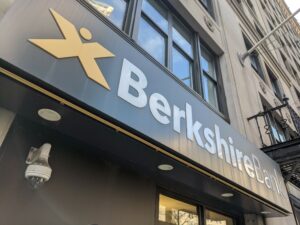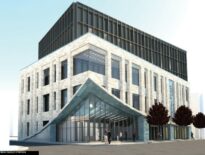After writing off goodwill impairment and taking a $549 million loss in the second quarter, Berkshire Bank will pay a dividend this quarter, but the amount will be cut in half.
The bank announced this week that the board of directors had approved a quarterly cash dividend of $0.12 per common share to shareholders of record at the close of business on Sept. 22, payable on Sept. 30. A quarterly cash dividend on its preferred stock of $0.24 per preferred share was also approved.
The dividend amounts per share represent a 50 percent reduction, and Berkshire Bank in a statement attributed the reduction to the impact of the COVID-19 pandemic on earnings and operations.
“Our company has paid a quarterly cash dividend to shareholders for our entire 20-year history as a public company. We raised our dividend in January, before the pandemic, which reflected our long-term plans for growth and profitability,” Sean Gray, Berkshire’s acting CEO, said in a statement. “This reduction of our dividend brings our yield and payout more in line with peers and with our historic ranges and will help to preserve our strong capital foundation to help us continue to support our customers and communities in these challenging times. It also positions us to accelerate shareholder distributions in the form of both dividends and stock buybacks when economic and public health conditions recover in the future.”
The board in January had increased the dividends by 4 percent, from $0.23 per common share and $0.46 per preferred share to $0.24 and $0.48, respectively.
In announcing the dividend increase earlier this year, then-CEO Richard Marotta said that measures of liquidity, capital, and asset quality had improved quarter-over quarter and that additional capital had been returned to shareholders through stock repurchases.
Since then, Berkshire, like other banks, has had to increase provisions for credit losses because of the pandemic. The bank also made a $554 million goodwill impairment charge related to a decade-long focus on acquisitions, creating a $549 million second quarter loss.
CEO Richard Marotta resigned unexpectedly last month, to “pursue new opportunities,” according to a statement from the bank.
Because of the 2020 losses, Berkshire must now receive approval from the Massachusetts Division of Banks for shareholder dividends, as well as a nonobjection from the Federal Reserve Bank of Boston.
Jamie Moses, Berkshire’s chief financial officer, said in response to an analyst’s question during the bank’s second quarter earnings call that the bank would take a holistic approach when deciding whether to pay future dividends, including looking at capital generated and loans charged off due to the pandemic.









